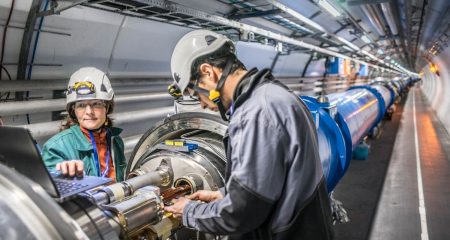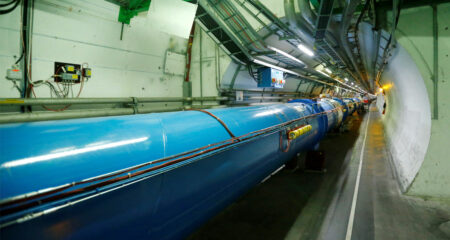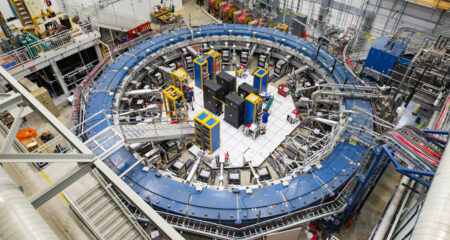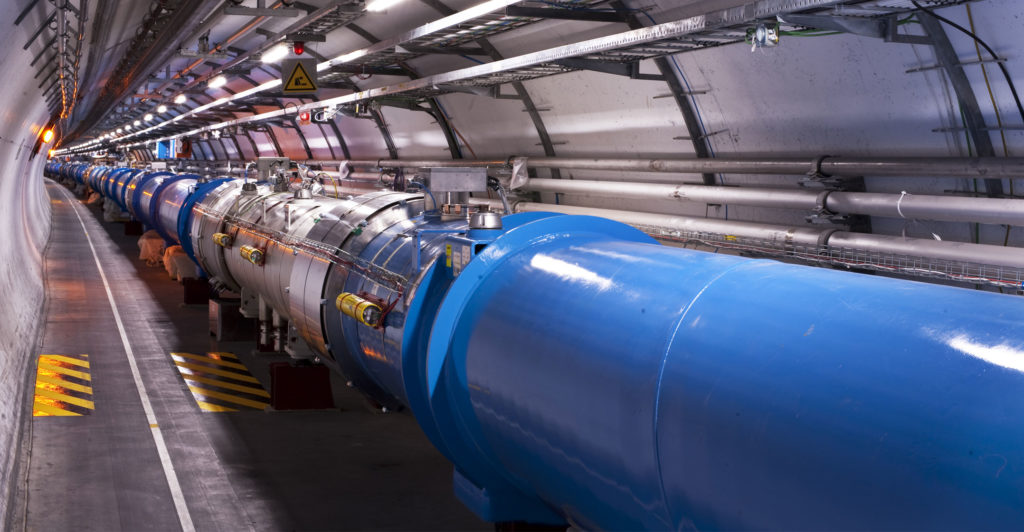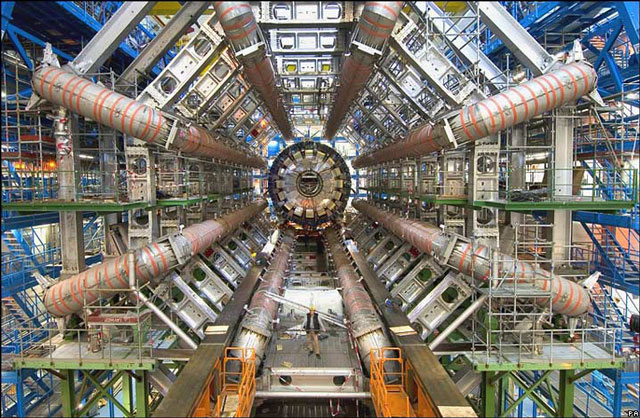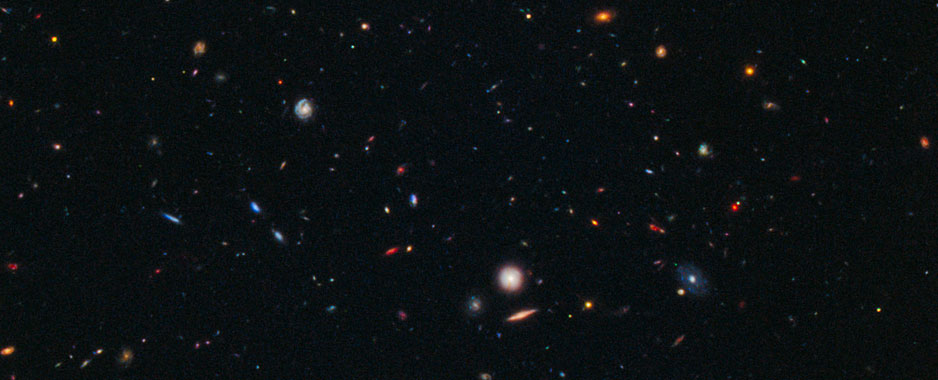Cern, the particle physics lab researching the smallest building blocks of the universe, is facing a new challenge.
Browsing: Large Hadron Collider
With the LHC reaching the end of its useful life around 2040, Cern is planning for a massive successor.
Working at the Atlas experiment at Cern, South African researchers have pioneered a new way of searching for dark matter.
Scientists working with the Large Hadron Collider have discovered three subatomic particles never seen before.
A series of precise measurements of already known, bog-standard particles and processes has threatened to shake up physics.
Why do we exist? A new experiment at Cern’s Large Hadron Collider has taken us a step closer to figuring it out.
Unlike the Higgs particle, which confirmed our understanding of physical reality, a new particle seems to threaten it.
Wits University scientists are excited about getting closer to understanding “dark matter”, the institution said on Wednesday. The High Energy Physics Group at Wits recently established the “Madala hypothesis”, in describing a new
Scientists are exploring the possibility of a new particle, the University of the Witwatersrand’s School of Physics said on Thursday. This was because of new results from the Large Hadron Collider at the European Organisation of Nuclear Research, Prof Bruce Mellado said. The
There was a bang, we think. About 14bn years ago, a tiny singularity — a point smaller than a pinhead and containing all the matter in our universe – exploded. We’re pretty sure. If we accept that the universe started with a bang – an “if” that is infinite and expanding at about 70km per second per megaparsec as you


